Introduction: Awakening New Possibilities for Cognitive Health
As the global population ages, the search for effective interventions against cognitive decline has taken on new urgency. Dementia, with its devastating erosion of memory, thinking, and daily function, demands innovative strategies. While traditional treatments offer limited success, a new frontier is emerging in the intersection of psychedelics and dementia. Interest in natural compounds like psilocybin—the psychoactive ingredient found in certain mushrooms—is expanding, particularly for its potential to stimulate brain health naturally.
You may also like: Exploring Psilocybin Neurogenesis: How Neurogenesis Mushrooms May Support Brain Health Naturally
Within this context, research into psilocybin and dementia is unfolding alongside growing exploration into supplements like multivitamins. Studies such as the multi vitamin study and the multivitamin memory study have sparked public curiosity about the broader promise of natural interventions. Even new study on vitamin supplements findings suggest that nutritional strategies may have a role in cognitive resilience. Now, psychedelics and dementia research offers a complementary path, fueled by scientific rigor and a renewed respect for nature’s therapeutic gifts.
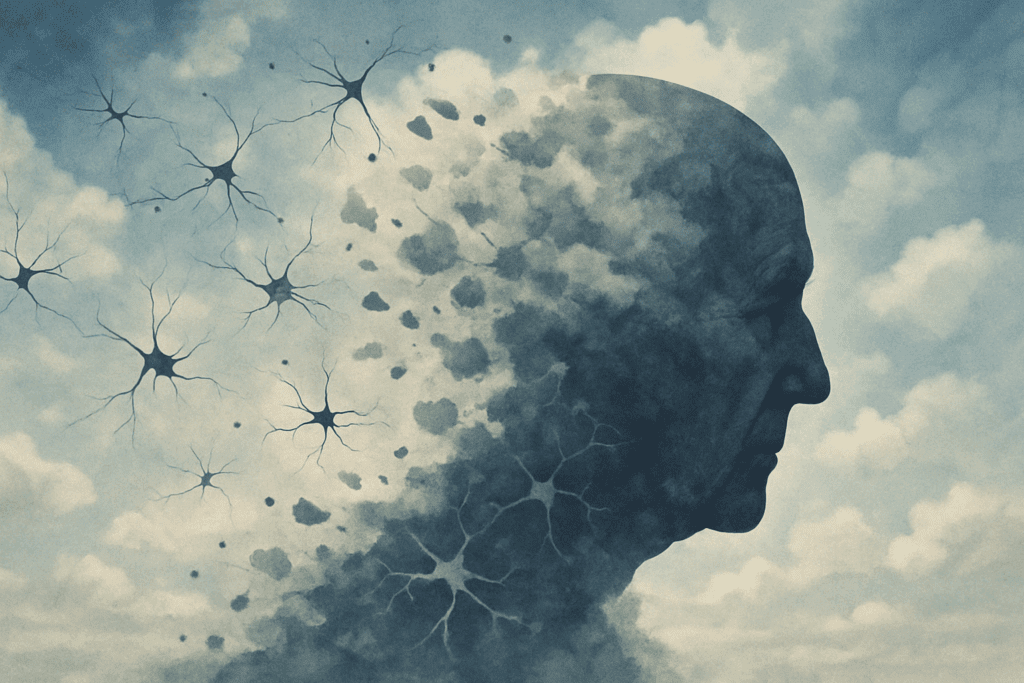
Understanding Dementia: A Growing Global Challenge
Dementia is not a single disease but rather a complex syndrome characterized by the progressive deterioration of memory, thinking, behavior, and the ability to perform everyday activities. Alzheimer’s disease is its most common form, but vascular dementia, Lewy body dementia, and frontotemporal disorders all represent significant subsets. Worldwide, dementia affects more than 55 million people, with numbers expected to rise sharply in the coming decades.
Efforts to combat dementia have traditionally focused on pharmaceuticals aimed at slowing symptom progression. Unfortunately, many medications offer only modest benefits, and none have yet proven capable of halting or reversing the underlying neurodegeneration. Against this backdrop, the emergence of psychedelics and dementia research offers a hopeful narrative shift—a chance to explore whether compounds like psilocybin can help regenerate neural pathways, promote plasticity, and foster emotional resilience.
While multivitamin efficacy studies, such as the multivitamin dementia study, underscore the value of foundational nutritional support, psilocybin offers a different, more targeted mechanism of action. Together, these approaches hint at a future in which dementia prevention and management are rooted in holistic, multi-faceted strategies.
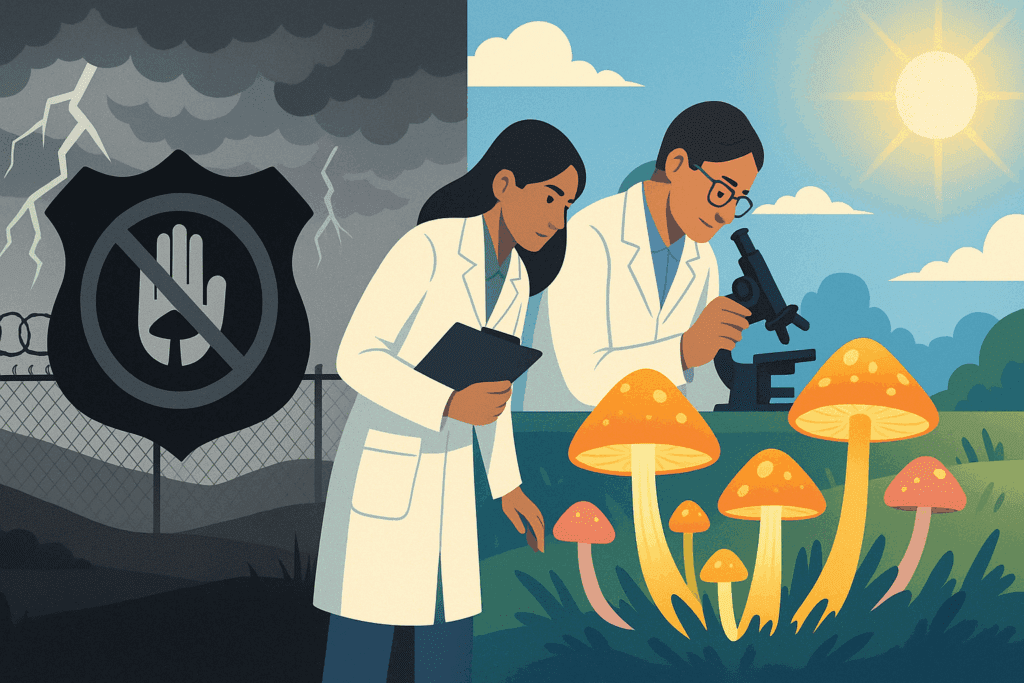
The Psychedelic Renaissance: From Stigma to Scientific Validation
The 20th-century cultural backlash against psychedelics severely curtailed scientific inquiry into their therapeutic potential. However, recent years have witnessed a dramatic reversal. Rigorous clinical trials now explore psilocybin for depression, anxiety, PTSD, and, increasingly, cognitive decline. This renaissance is fueled by improved methodologies, a better understanding of brain plasticity, and growing societal openness to alternative healing modalities.
In examining psychedelics and dementia, researchers are particularly intrigued by psilocybin’s ability to induce neuroplasticity—the brain’s capacity to form new connections and reorganize itself throughout life. Early studies suggest that psilocybin may stimulate the growth of dendritic spines, enhance synaptic density, and modulate activity within the default mode network—all critical factors for cognitive health.
These findings echo themes seen in nutritional research, where studies on multivitamin for brain function and multivitamins may slow memory loss demonstrate that natural compounds can meaningfully impact brain resilience. Together, these avenues point toward an integrative model of cognitive support.
Mechanisms of Action: How Psilocybin May Influence Brain Health
Psilocybin acts primarily on the serotonin 2A receptor, a critical modulator of mood, cognition, and perception. This interaction sets off a cascade of neurochemical changes that can profoundly alter brain function, often enhancing emotional flexibility and fostering experiences of interconnectedness. More crucially for dementia research, psilocybin appears to promote structural and functional neuroplasticity.
Animal studies show that even a single administration of psilocybin can stimulate the growth of new neural connections, particularly in the hippocampus—a brain region essential for memory and learning. In humans, neuroimaging reveals decreased activity within the default mode network after psilocybin exposure, a pattern linked to improved cognitive integration and reduced rumination.
Such effects parallel findings in the vitamin supplement study sphere, where nutrients like B vitamins and omega-3 fatty acids support neurogenesis and synaptic repair. The convergence between psilocybin and multivitamin research underlines a broader principle: that targeted natural interventions can profoundly influence brain health at the cellular level.
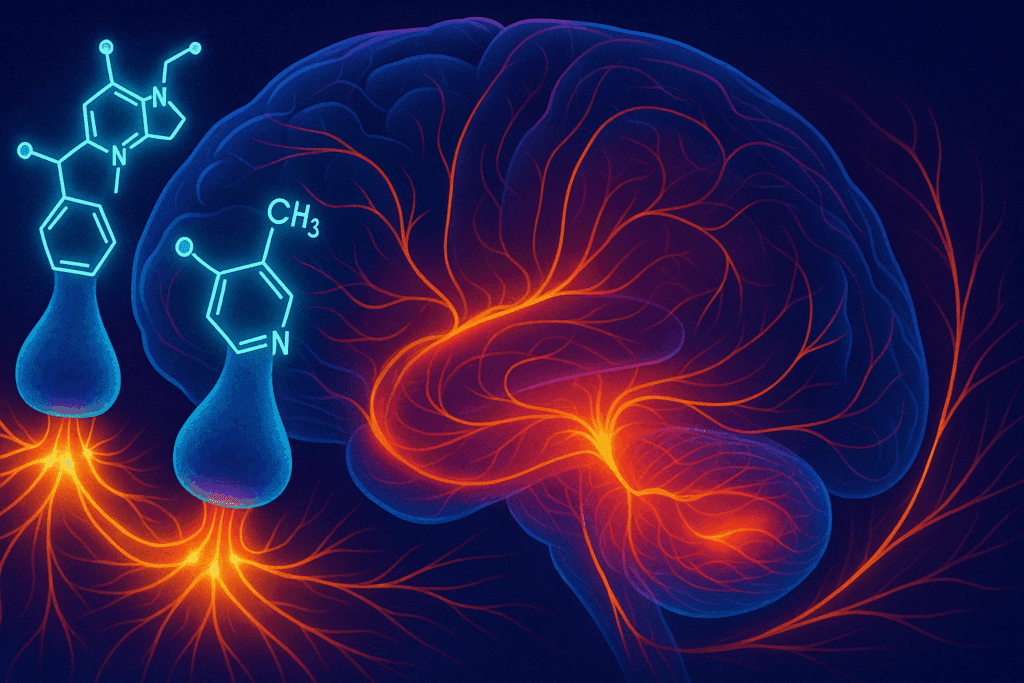
Psychedelics and Dementia: Early Clinical Insights
Although research is in its infancy, early clinical studies hint at the promise of psilocybin for individuals experiencing cognitive decline. Pilot trials exploring psilocybin-assisted therapy for depression in Alzheimer’s caregivers, for instance, have shown significant reductions in anxiety and depressive symptoms—factors that, if left untreated, may exacerbate cognitive deterioration.
Moreover, psilocybin’s capacity to enhance emotional resilience and facilitate meaning-making could prove invaluable for dementia patients grappling with existential distress. These benefits resonate with the holistic approaches seen in multivitamin dementia study findings, where nutritional support contributes not only to cognitive but also to emotional well-being.
Importantly, researchers emphasize that psilocybin therapy must be carefully tailored for older adults, taking into account comorbidities, medication interactions, and individual neurobiology. Personalized protocols, similar to those advocated in multivitamin research, will likely be key to optimizing outcomes.
Comparing Psilocybin and Multivitamin Interventions
At first glance, psilocybin and multivitamin interventions might seem worlds apart. Psychedelics evoke profound, transformative experiences, while multivitamins offer subtle, accumulative support. Yet both approaches share common ground: a commitment to bolstering the brain’s intrinsic healing capacities through natural means.
In multi vitamin study results, participants often experience modest but measurable gains in memory retention, executive function, and processing speed. Similarly, psilocybin therapy may yield enhancements in cognitive flexibility, emotional regulation, and adaptive behavior. Both paths recognize that brain health is dynamic, multifactorial, and amenable to intentional cultivation.
Furthermore, a daily vitamin for memory loss might complement psychedelic interventions by providing essential cofactors for neurotransmitter synthesis, mitochondrial function, and antioxidant defense—laying a biochemical foundation for more dramatic psilocybin-induced changes. This synergy mirrors the holistic integration advocated in emerging brain health paradigms.
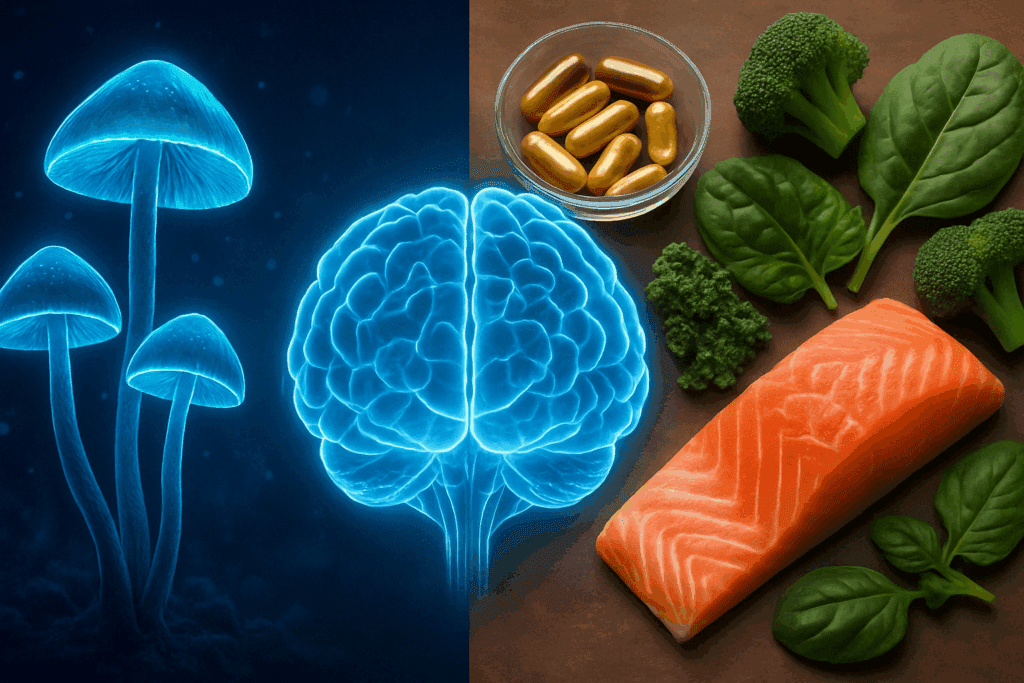
Safety Considerations and Ethical Implications
No discussion of psychedelics and dementia would be complete without addressing safety. Although psilocybin is generally well-tolerated in controlled settings, its potent effects on perception and emotion necessitate caution. Older adults may be particularly vulnerable to disorientation, cardiovascular strain, or exacerbation of underlying psychiatric conditions.
To mitigate these risks, clinical frameworks emphasize “set and setting”—creating a supportive psychological and physical environment—and comprehensive medical screening. These best practices align closely with individualized strategies recommended for multivitamin for dementia patients, where careful attention to dosage, bioavailability, and interactions is essential.
Ethical considerations also loom large. Informed consent, cultural sensitivity, and equitable access must guide the responsible integration of psilocybin therapies. As with multivitamin news, transparency and evidence-based communication will be critical for building public trust.
The Broader Context: Lifestyle, Nutrition, and Neuroprotection
While psilocybin and dementia research sparks justifiable excitement, it is unlikely to offer a standalone solution. Cognitive health is profoundly influenced by a constellation of factors: diet, exercise, sleep, social engagement, intellectual stimulation, and emotional well-being.
This broader perspective aligns with findings from the new study on vitamin supplements, which emphasize the cumulative impact of lifestyle choices on brain aging. Integrating psychedelics within comprehensive wellness programs—potentially including a multivitamin for brain function, mindfulness practices, and personalized nutrition—may yield the most robust outcomes.
Moreover, multivitamin research consistently points to the value of early and sustained intervention. Just as multivitamins may slow memory loss when initiated before significant decline sets in, so too might psilocybin therapies exert greater benefits when introduced in preclinical or early-stage cognitive impairment.
Practical Considerations for Interested Individuals
For individuals curious about the intersection of psychedelics and dementia, a cautious, informed approach is paramount. Psilocybin remains a controlled substance in many jurisdictions, and self-experimentation carries legal, medical, and psychological risks.
Seeking guidance from licensed practitioners operating within approved clinical trials or therapeutic frameworks offers a safer pathway. Similarly, individuals exploring multivitamin options are advised to choose products backed by clinical validation and to consult healthcare providers for personalized recommendations. Insights from the multivitamin and memory loss study landscape illustrate the importance of selecting high-quality supplements with proven bioavailability.
Ultimately, a proactive, research-informed stance—combining reputable information sources, professional consultation, and critical thinking—is the surest way to navigate this promising yet complex terrain.
The Future of Psychedelic Research in Dementia Care
Looking ahead, the future of psychedelics and dementia research appears both challenging and exhilarating. Large-scale randomized controlled trials, long-term safety assessments, and deeper investigations into mechanisms of action are urgently needed. Additionally, integrating psilocybin research with insights from the multivitamin dementia study field could illuminate synergistic strategies for comprehensive brain support.
Precision medicine approaches—tailoring interventions based on genetic, metabolic, and psychosocial profiles—will likely play a central role. Emerging technologies, such as functional imaging and digital cognitive assessments, may enable more nuanced measurement of outcomes, guiding personalized treatment plans.
Moreover, public education will be crucial. Just as multivitamin news campaigns have helped destigmatize and demystify nutritional supplementation, thoughtful communication around psilocybin’s risks and benefits can foster responsible, informed engagement.

Frequently Asked Questions (FAQ) About Psilocybin, Psychedelics, and Dementia
1. How might future advancements in psychedelics and dementia research change clinical practice?
As the field of psychedelics and dementia advances, it is anticipated that more personalized and precision-based treatments will emerge. Instead of one-size-fits-all approaches, researchers are investigating how factors such as genetic markers, lifestyle, and disease progression stage can influence a patient’s response to psilocybin and dementia therapies. Future clinical models may integrate psychedelic-assisted therapies with cognitive training programs, dietary strategies, and personalized supplements to maximize neuroplasticity. Moreover, advancements in imaging technologies could allow clinicians to monitor brain changes more precisely, enabling real-time optimization of treatment protocols. The integration of psychedelics into dementia care could ultimately redefine standard therapeutic frameworks, offering more holistic, patient-centered care.
2. Are there specific types of dementia that might benefit more from psychedelics than others?
Emerging research suggests that psychedelics and dementia therapies might show differential benefits depending on the type of dementia involved. For instance, early studies indicate that Alzheimer’s disease, characterized by neuroinflammation and synaptic loss, could respond favorably to psilocybin’s anti-inflammatory and neurogenic effects. In contrast, dementias driven primarily by vascular damage might require adjunctive cardiovascular therapies alongside psychedelic use. Similarly, frontotemporal dementia, which often involves profound emotional dysregulation, could see specific benefits from psychedelics’ capacity to enhance emotional processing. As understanding deepens, customized approaches that match psilocybin and dementia therapies to the underlying pathophysiology of each dementia subtype are likely to evolve.
3. How do psychedelics influence brain networks differently than traditional dementia treatments?
Traditional dementia treatments often aim to preserve neurotransmitter function, while psychedelics and dementia research focuses on reorganizing brain networks altogether. Psilocybin, for example, has been shown to disrupt the default mode network (DMN), a brain system implicated in rigid, habitual thought patterns and cognitive decline. By temporarily reducing DMN dominance, psilocybin can facilitate more flexible and interconnected brain activity. This dynamic shift contrasts with the relatively static support offered by traditional medications like cholinesterase inhibitors. As a result, psychedelics may enable deeper structural and functional remodeling of the aging brain, offering a fundamentally different approach to long-term cognitive support.
4. What role could microdosing play in future psychedelics and dementia interventions?
Microdosing, or consuming sub-perceptual doses of psychedelics, is increasingly being explored as a potential adjunct in psychedelics and dementia care. Unlike full-dose sessions, microdosing may subtly enhance neurogenesis, mood regulation, and cognitive flexibility without inducing profound altered states. For dementia patients, this gentle stimulation of neural plasticity could help maintain daily functioning and emotional stability. Early anecdotal evidence also suggests that microdosing psilocybin may synergize well with cognitive rehabilitation exercises, amplifying their effectiveness. However, rigorous, long-term studies are needed to determine safe dosing schedules and to fully understand the potential benefits and risks associated with this practice.
5. Could combining psilocybin with traditional supplements enhance outcomes for dementia patients?
An exciting frontier in psychedelics and dementia research involves combining psilocybin with evidence-based nutritional supplements. Compounds like omega-3 fatty acids, B vitamins, and antioxidants have established roles in supporting brain health and could theoretically augment the neurogenic effects of psilocybin. For instance, integrating a multivitamin regimen shown to be effective in a multivitamin dementia study with psilocybin therapy might offer a synergistic boost to cognitive resilience. Some scientists are also investigating adaptogenic herbs, like lion’s mane mushroom, that may enhance psilocybin’s neuroplastic effects. Moving forward, carefully designed combination protocols could offer a more comprehensive approach to slowing cognitive decline naturally.
6. What are the ethical considerations around using psychedelics and dementia treatments in vulnerable populations?
The use of psychedelics and dementia therapies in elderly, cognitively impaired populations raises unique ethical questions. Issues such as informed consent, potential emotional distress during altered states, and equitable access must be carefully addressed. Patients with dementia may have diminished capacity to understand or consent to psychedelic therapy, necessitating rigorous ethical oversight and the involvement of family or legal guardians. Additionally, researchers and clinicians must prioritize the emotional safety of participants, ensuring that therapeutic settings are meticulously controlled. As psilocybin and dementia research progresses, comprehensive ethical frameworks will be critical to protecting patient rights and promoting trust in these emerging treatments.
7. How might psychedelics impact caregiver-patient relationships in dementia care?
Beyond their direct neurological effects, psychedelics and dementia therapies could also influence the emotional dynamics between patients and their caregivers. Some early pilot studies suggest that psilocybin-assisted sessions may enhance emotional openness, reduce anxiety, and foster deeper interpersonal connection. For caregivers, these changes could ease the emotional burden of supporting a loved one with cognitive decline, potentially improving relational quality and reducing caregiver burnout. Furthermore, new therapeutic models may involve joint sessions where caregivers and patients participate in parallel psychedelic-assisted therapies aimed at mutual healing. Such innovations could transform not only the patient experience but also the broader social ecosystem surrounding dementia care.
8. Could psychedelics help address the emotional symptoms often accompanying dementia?
Dementia is not solely a cognitive disorder; it also profoundly affects mood and emotional regulation. Psychedelics and dementia therapies hold particular promise in addressing the depression, anxiety, and emotional blunting that often accompany cognitive decline. Psilocybin, for example, has demonstrated strong efficacy in reducing treatment-resistant depression, suggesting it may similarly alleviate the emotional burdens faced by dementia patients. By fostering new emotional patterns and breaking entrenched negative thought cycles, psychedelics could dramatically enhance overall quality of life for individuals grappling with dementia. Research into these effects remains early but highly promising, potentially broadening the therapeutic landscape beyond cognition alone.
9. How might future healthcare systems integrate psychedelics into mainstream dementia treatment?
If current trends continue, psychedelics and dementia therapies could eventually become an accepted component of comprehensive cognitive care. Future healthcare models might include specialized psychedelic clinics offering monitored psilocybin therapy sessions tailored for dementia patients. Integration with existing practices, such as cognitive behavioral therapy and nutritional interventions like multivitamin for dementia patients programs, would offer a holistic framework. Reimbursement policies and insurance coverage could also evolve to accommodate psychedelic-assisted treatments, particularly if large-scale studies confirm their cost-effectiveness compared to conventional pharmaceuticals. Building these systems will require ongoing education, public awareness campaigns, and continued efforts to destigmatize psychedelic medicine.
10. What are some potential risks and limitations of using psychedelics for dementia?
While the promise of psychedelics and dementia therapies is considerable, it is important to approach their use with appropriate caution. Psychedelic experiences can sometimes trigger anxiety, confusion, or even paranoia, particularly in individuals with pre-existing cognitive impairments. There is also the risk of unrealistic expectations, as psychedelics are not a “cure” for dementia but rather a potential tool for slowing decline and improving quality of life. Moreover, long-term effects of repeated psilocybin use in elderly or neurologically vulnerable populations remain under-researched. As such, careful screening, professionally supervised sessions, and individualized risk assessments will be essential to ensure that psilocybin and dementia therapies are both safe and effective for those who need them most.
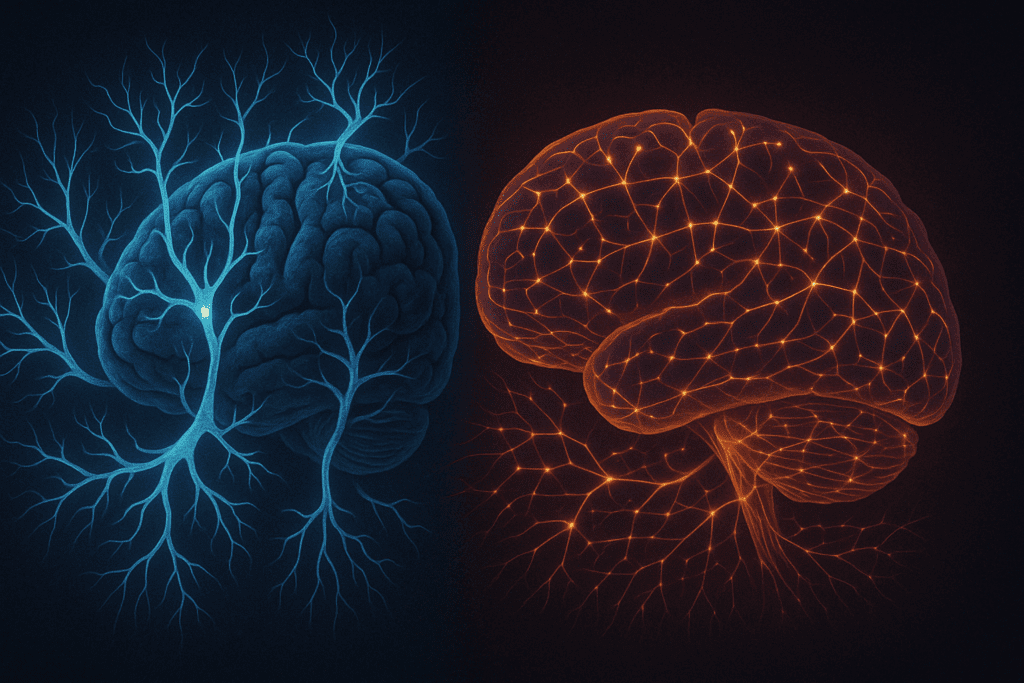
Conclusion: Integrating Natural Strategies for Lifelong Brain Vitality
In exploring psilocybin and dementia, we stand at the threshold of a new era in cognitive care—one that honors both ancient wisdom and cutting-edge science. Psychedelics and dementia research offers a bold, hopeful vision of neural renewal, while multivitamin efficacy studies remind us of the foundational importance of nutritional stewardship.
By integrating natural strategies—whether through neuroplasticity-enhancing psychedelics, targeted nutritional supplementation informed by multivitamin research, or holistic lifestyle practices—we can cultivate brains that are not merely resistant to decline but vibrantly, dynamically alive.
Future discoveries will undoubtedly refine our understanding, but even now, the convergence of multivitamin memory study findings, multi vitamin study results, and psychedelic clinical trials points toward an inspiring possibility: that with care, courage, and creativity, we can chart a new course toward lifelong cognitive vitality.
As we move forward, embracing the synergy between psilocybin therapies, multivitamin dementia study insights, and integrative wellness holds extraordinary promise—not just for individuals at risk of cognitive decline, but for all of humanity seeking to flourish mindfully, naturally, and sustainably.
Was this article helpful? Don’t let it stop with you. Share it right now with someone who needs to see it—whether it’s a friend, a colleague, or your whole network. And if staying ahead on this topic matters to you, subscribe to this publication for the most up-to-date information. You’ll get the latest insights delivered straight to you—no searching, no missing out.
Further Reading:
Psilocybin for the treatment of Alzheimer’s disease
Psychedelics as a Treatment for Alzheimer’s Disease Dementia
Psilocybin to promote synaptogenesis in the brains of patients with mild cognitive impairment
.Important Note: The information contained in this article is for general informational purposes only, and should not be construed as health or medical advice, nor is it intended to diagnose, prevent, treat, or cure any disease or health condition. Before embarking on any diet, fitness regimen, or program of nutritional supplementation, it is advisable to consult your healthcare professional in order to determine its safety and probable efficacy in terms of your individual state of health.
Regarding Nutritional Supplements Or Other Non-Prescription Health Products: If any nutritional supplements or other non-prescription health products are mentioned in the foregoing article, any claims or statements made about them have not been evaluated by the U.S. Food and Drug Administration, and such nutritional supplements or other health products are not intended to diagnose, treat, cure, or prevent any disease.


